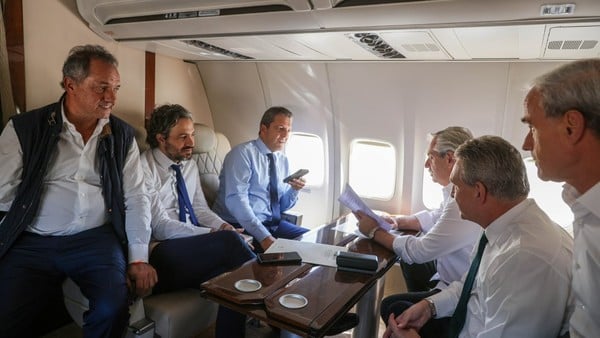Global Courant 2023-05-09 05:02:19
Minister Haddad will not come to Argentina and will attend the G7 summit. The Government seeks financing for trade with the neighboring country.
After Alberto Fernández’s request, Lula again showed caution about possible economic aid to Argentina. The Government expected this week the disembarkation of a mission from that country to advance in an agreement that eases the use of dollars in bilateral trade, but the Minister of Economy of Brazil, Fernando Haddad, was sent to the summit of the most powerful countries of the planet (G7).
“Haddad is going to be in Japan all week for the G7 meetings,” was the information they received from Brazil in official dispatches. Lula’s decision represents a change of plans after the failed summit in Brasilia, where Fernández assured that he had reached an agreement so that “next week (for this week) the team of the minister (Fernando) Haddad with that of (Sergio) Massa meet to see how we can make these things happen”.
The Government organized this lightning trip in response to the currency run at the end of April, which shot the blue to close to $500 and accelerated the loss of reserves. The President, Massa and Daniel Scioli tried to unlock credit for Brazilian exports to Argentina and thus postpone the use of dollars. Lula was willing to intercede with the IMF to help Fernández, but he added an unexpected actor to the radar: the BRICS.
The idea of the PT leader is that the new bank of the commercial block grants the guarantees needed by the National Development Bank (BNDES) of Brazil to authorize the financing, in reais, of exports from that country to Argentina. In this way, Lula involved China in the negotiation of a financial umbrella to cover the risk that Argentine importers could not pay the dollars owed.
“They are negotiating the guarantee of the BRICS”, indicated from the Ministry of Economy. Sources from the Brazilian embassy, meanwhile, did not comment on Clarín’s inquiry.
Actually, Brazil has its own Export Guarantee Fund (FGE) to insure against risks. Massa pointed out that this body, managed by the BNDES and with assets of around US$8.4 billion, finances the gas pipeline in Vaca Muerta. Bilateral trade was also discussed, but Argentina would not meet the requirements and Lula faces internal criticism for having financed other countries at favorable rates during his first term.
There was strong criticism of all this from the Brazilian press regarding this possibility.
Within this framework, Brazilian exporters face increasing difficulties to trade with Argentina. To begin with, they have to wait for the approval of 180-day permits, while they note an increase in authorized operations in yuan due to the swap with China. The Asian giant took the market away from Brazil and today it is the second largest exporter to Argentina with an 18% share, behind the 24% represented by the neighboring country.
On the other hand, companies in Brazil complain about the increase in the commercial debt that Argentine importers maintain with that country and the difficulties in transferring currency due to exchange restrictions. “If you want to withdraw funds from Argentina, you have a 60% tax rate, which makes companies start buying real estate in Argentina, it’s almost a real estate agency in Argentina,” a Brazilian official acknowledged to O’Globbo.
Although Fernández had to return last week “without money”, as Lula ironically acknowledged, the Chinese threat keeps negotiations open. Argentina represents a key destination for the powerful industrialists of Sao Paulo. In the first quarter, Brazil exported US$4 billion to its main Mercosur partner. “If exports fall, it will hit Brazil’s production,” said a local businessman.




